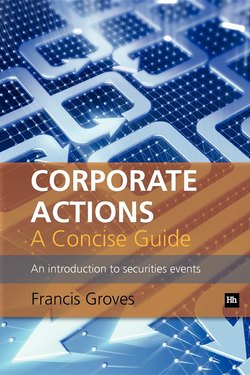Читать книгу Corporate Actions - A Concise Guide - Francis Groves - Страница 21
На сайте Литреса книга снята с продажи.
Share buyback – a non-event
ОглавлениеAchieving a similar result as return of capital, a share buyback occurs when an issuer buys back its own shares on the open market.
Normally a company would require the approval of a shareholder meeting for such a move but a share buyback is not a true corporate action. This is because the transaction takes place in the stock exchange rather than through formal contact with the shareholders about an entitlement that is proportional to their shareholding.
Both returns of capital and share buybacks have been fairly common in recent years as companies have tended to build up substantial reserves. Shareholders benefit directly from a return of capital while buybacks have an indirect benefit through the support to the share price of an issuer buying its own shares in significant amounts. Share commentators will often contrast actions like these with the launching of takeover bids, an alternative use for piles of cash.
However, share buybacks can be used by a company as a means of a (favoured) major shareholder increasing its holding. The share buyback by Arcelor in 2006 was controversial because the Severstal stake in the company would have risen from 32% to 38% of the shares.
Generally speaking, share buybacks usually result in a small initial increase in the share price. They can eat into a company’s reserves of cash so there may not be funds for increased dividends straight away. Managements can be accused of trying to distract shareholders from poor performance with buybacks.
Shareholders with some capital gains tax allowance to spare mayprefer an issuer to spend its cash on share buybacks rather than on a higher dividend (which will be subject to income tax).
